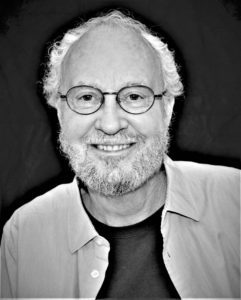Today, Feathered Quill reviewer Lynette Latzko is talking with J.R. Klein, author of To Find: The Search for Meaning in Life on the Gringo Trail.
FQ: What made you decide to write this memoir?
KLEIN: When I returned from my journey on the Gringo Trail in 1980, I had a diary in the form of three spiral notebooks filled with my thoughts of the trip. I turned this into a manuscript initially just to better flesh out the experiences. I still have the original three notebooks, tied together with string, sitting on a shelf in my office.
FQ: You had quite the experience during the 101 days you were traveling in search of meaning in your life. Would you do it again?
KLEIN: Not in the same way, I suppose. It was the right approach back when I was more impulsive, and it did largely accomplish what I was after. However, it has always been my nature to explore my feelings and to seek answers to them. Today, I am able to do that in a number of ways, an important one of which is through writing. There is another reason I probably wouldn’t attempt a similar trip now, however. In 1980, life had not yet evolved into the digital era it is today. Instant communication did not exist. For the most part, I was totally out of touch with my family and everyone else in the US; they had no idea where I was at any given time. That made the journey more dangerous and more scary at times, yet oddly more exciting and meaningful.
FQ: After you completed your quest and returned home, was there anything you regretted?
 KLEIN: Despite the ups and downs that came out in the book, the experience was a heart-warming one overall. I’d be hard-pressed to find anything I regretted.
KLEIN: Despite the ups and downs that came out in the book, the experience was a heart-warming one overall. I’d be hard-pressed to find anything I regretted.
FQ: Why did you choose to change your name while writing your memoir?
KLEIN: That’s a good question. When I originally wrote the book, I did so as a book of fiction, which of course was based heavily on my experiences. I kept the names of the people in the book as they were in my travels, apart from myself and the person who became Stefan in the book. When I realized that the book was truly a memoir in every way, it made sense to go in that direction. There are a number of examples in literature of how memoirs and biographies were converted totally over into fiction. Perhaps one of the most notable is On The Road by Jack Kerouac. In my case, after To Find was written, I felt more comfortable using a memoir format for a number of reasons. One was that—as they say—life is stranger than fiction. Were it a book of fiction, some might find various events preposterous and absurdly far-fetched: for example, the notion that it was possible to travel on less than five dollars a day even back in 1980, or my experiences at the Mayan temples.
FQ: Looking back over the years, how has your life changed since you took this trip in an attempt to find yourself?
KLEIN: The trip was transformative in many ways, both mentally and spiritually. It brought a sense of inner searching that I still continue to nourish.
FQ: There are numerous, wonderful characters you write about in your memoir. What happened to them? Do you still have contact with Stefan, Yvette or any other amigos you met on your travels through Mexico and Central America?
KLEIN: Stef and I eventually drifted apart, largely due to the different paths we have chosen in life, and to a certain extent because I have moved about quite a bit since 1980—after MIT, I took a position at the University of California in San Diego, then in Tulsa, Oklahoma, and now in Houston, Texas. Things between Yvette and myself didn’t work out. I attribute that to the fact that life on the Gringo Trail was a whole lot different from life in the ‘real world’—on a day to day basis, at least. I occasionally wonder what happened to Nash, who was a source of constant entertainment for us while we traveled. He was heading down to South America when Yvette and I got to Guatemala.
FQ: Do you have any tips or suggestions for aspiring writers who are considering writing a memoir?
KLEIN: Memoirs are very tricky. The big question for me was: Okay, this stuff is important to me, but who really gives a hoot about me or my life? It was a question that really troubled me for a long time—forty years, in fact, from the time the original manuscript was written until now when I published it. My wife read the manuscript almost twenty year ago and has been after me to publish it ever since. I’m glad I finally followed her advice.
FQ: As a seasoned author who has written in several different genres, do you feel that writing a memoir is effortless or more challenging than writing fiction?
KLEIN: In writing fiction, it can be easier to keep the pace going. If I find that things are slowing down, there are lots of ways to rev up the momentum again. The challenge with a memoir is how much to put in, how much to leave out, and how to ensure that it is nothing more than a tally of life’s events.
FQ: Are you planning on writing a sequel? Perhaps a story of life after the Gringo trail?
KLEIN: Not yet. I haven’t mastered the art of sequel writing the way some writers have. Every time I try, the book ends up being a butchered version of the original.


No comments:
Post a Comment